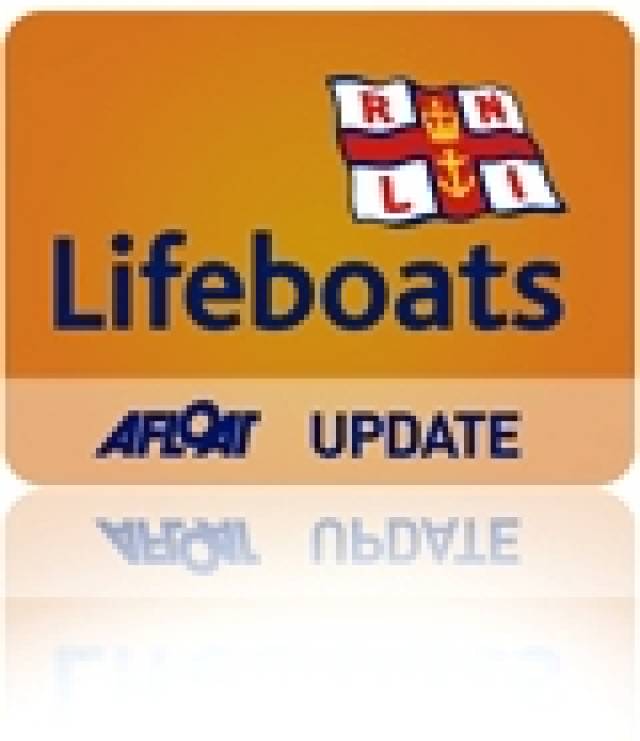#rnli – With the recent downpours, the RNLI is calling on people to put their wellies to good use and support their forthcoming MAYDAY appeal. The charity that saves lives at sea is asking the public to hold a welly themed fundraising event or buy a special yellow welly RNLI MAYDAY key-ring to raise funds for the lifeboat service in Ireland. The RNLI MAYDAY appeal is supported by John West.
The yellow welly is an essential piece of the RNLI volunteer lifeboat crewmember's kit. Waterproof with steel-capped toes, the specially designed boots keep the volunteer crew's feet warm and dry while also protecting them in dangerous conditions on deck. During gale force winds, rain and ice, keeping a sure footing can literally mean the difference between life and death for our volunteers. A pair of yellow wellies for a volunteer costs €50 but supporting the RNLI's MAYDAY appeal and buying a yellow welly key-ring will cost just €2.
RNLI MAYDAY is set to run from the first to the sixth of May with yellow welly key-rings being sold by volunteers in many shopping centres and towns around Ireland. Companies can also request a box of the MAYDAY key-rings to sell in their work place or hold their own welly fundraiser.
RNLI Corporate Manager Rhona O'Connor said, "We are asking people to give it some welly and get behind RNLI MAYDAY. Wellies are something that we are all too familiar with recently. Whether it's for getting around in bad weather or attending festivals and outdoor gigs, we love our wellies. The RNLI volunteer lifeboat crew love their wellies too and want people to help them raise funds. So whether it's a wear your wellies to work fundraiser or simply buying a yellow welly MAYDAY key-ring we hope people will give it some welly for the charity which has been saving lives since 1824."
Supporting MAYDAY Dun Laoghaire RNLI volunteer crewmember Rob Landers commented, "We are delighted to be associated with the RNLI MAYDAY appeal. As a volunteer crewmember I benefit directly from the training and the equipment that the charity provides for its lifeboat crew. We rely on the support and the generosity of the public to ensure the lifeboat crews based around Ireland can continue to save lives at sea and on inland waters."
The RNLI MAYDAY appeal is proudly supported by John West who themselves have a long seagoing tradition. Since 1857 the company has had their own fleet of fishing boats. John West Chief Executive Brendan Murphy added, "At John West we know first-hand the reality of the power of the sea, and we fully appreciate and support the work that the RNLI do in saving lives everyday throughout Ireland."
Last year RNLI lifeboats in Ireland launched 939 times to bring 1,041 people to safety. Volunteer lifeboat crew answer all types of maydays. It was a busy few days for the RNLI around the country with Wicklow RNLI launched last Friday in gale force conditions to bring a French fishing vessel with four people onboard to safety. While yesterday (Monday 25 March) Howth RNLI launched their inshore lifeboat when a father and daughter became stranded on the East pier due to high waves. The pair were taken onboard the lifeboat after a crewmember walked them to safety, through breaking waves, from the alcove where they were sheltering. In Cork Ballycotton RNLI launched to rescue a lone sailor in difficulty. On arrival at the scene, lifeboat crew boarded the vessel and took the man onboard. The decision was made to have him airlifted by the Irish Coast Guard helicopter from Waterford and taken to hospital for treatment.
Events already planned for RNLI MAYDAY include a welly walk down Dun Laoghaire pier in Dublin on Sunday 5 May, an open water swim in Dunmore East, Waterford and the Sherkin Island to Baltimore sea swim in west Cork, also on the Sunday. For a list of scheduled events, fundraising ideas and to register an event visit: www.rnli.org/MAYDAY or call: 01895 1837
































































